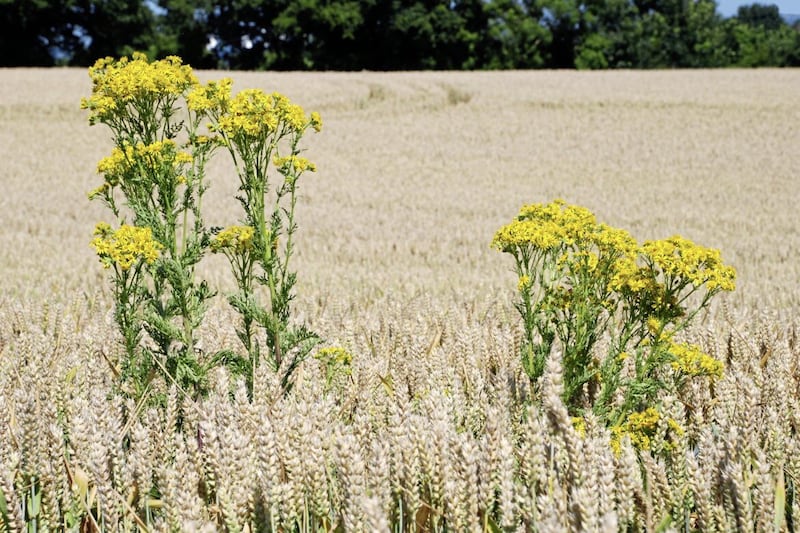ADDRESSING the Joint Oireachtas Committee on Foreign Affairs and Trade on May 13 Bishop John McAreavey stated: "The ongoing persecution of Christians is an issue that unites all Christians. Pope Francis has referred to it as ecumenism of suffering."
The global persecution of Christians is no secret. Groups such as Isis and Boko Haram use the internet to proudly display their atrocities.
Attacks on churches, schools and religious groups are deliberately horrific, designed to generate maximum publicity.
Yet these grievous human rights abuses, which in some areas have amounted to genocide, have not been met with a clear and coordinated response from the international community.
In the context of the wider geopolitical power struggles that created the breeding ground for this persecution, these suffering populations become collateral damage.
When world leaders discuss possible responses to the events in Iraq and Syria, the priority is to bring "stability to the region"; justice and human rights for the people and protection for minorities are far down the list.
Without protection for basic human rights, however, there will be no stability, no lasting peace. One set of perpetrators will simply be replaced by another, as we have seen so many times before.
The challenge of bringing a just and inclusive political settlement to this region will require courageous leadership, firm political will and a significant commitment of time and resources.
Political leaders will only take up this challenge if the citizens of their own countries make it a priority, in solidarity with the populations under threat.
Pope Francis has repeatedly condemned the "complicit silence" of the international community, which allows this brutal persecution to continue.
We all have a responsibility to ensure that the voices of the victims of persecution are heard.
Bishop McAreavey, in his presentation to the committee, read from a letter addressed to the Irish Bishops from the Patriarch of Babylon.
"What happened is like a tsunami of refugees that overwhelmed us," wrote Patriarch Sako, describing the feeling in Baghdad as 120,000 displaced Christians fled to the city from Mosul and the surrounding villages.
On June 11, the Syrian-Catholic Archbishop of Mosul, Monsignor Yohanna Petros Mouche, addressed the bishops' summer general meeting in Maynooth.
In a moving account of the suffering of his people, he stated: "We have sacrificed everything for our faith. Our people have lost everything, simply because they are Christians.
"This is a time of terrible insecurity, with little hope of a peaceful resolution to the crisis in the near future."
The Archbishop was speaking both as a religious leader and a displaced person. Having held on for as long as possible, he was forced to abandon his home as Isis troops advanced without even time to pack his alb and stole.
He told the Irish bishops how he was torn between wanting his people to stay so that Christianity would not be wiped from the face of their homeland, while knowing at the same time that they could not stay in conditions that are not survivable.
Archbishop Mouche described the daily challenges faced by his displaced community. In addition to providing for basic needs such as food and clothing, churches are trying to create work for the adults to keep them occupied and prevent them sinking into despair.
Educating the children is vital for the future of the whole community, but presents significant logistical challenges.
They need to find a suitable building, books and other materials, teachers and transport. Children also need sport to protect their health - physical and emotional - in these difficult conditions. While war rages around them, life must go on, but difficult decisions have to be made for the future.
Bishop Noel Treanor described to the Archbishop initiatives that have been organised by parishes in the Diocese of Down and Connor to promote prayer and reflection in solidarity with persecuted Christians.
Archbishop Mouche responded that this solidarity is a great comfort to his people: "With so many people praying for us, it reminds us that God cannot forget us."
In March this year the Irish bishops called for a renewed global commitment to freedom of conscience and religion, arguing that the significance of this human right is in danger of being overlooked.
Christians are not the only group being persecuted by these brutal regimes - other ethnic and religious minorities, as well as the LGBT community, are suffering horrific violence and oppression.
This is an issue that concerns everyone. Where the right to freedom of conscience and religion is denied, other serious human rights abuses will follow. If we open our hearts and minds to hear the voices of the victims, we cannot fail to see that the denial of their dignity wounds all of humanity.
::Dr Nicola Brady is research coordinator of the Bishops' Council for Justice and Peace








